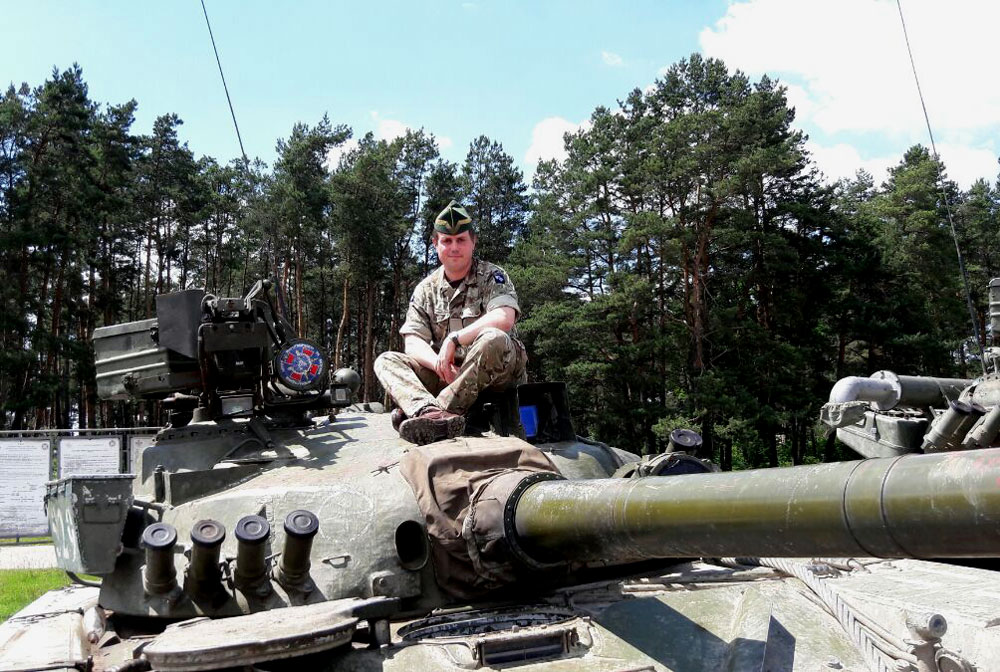I was born into an Army family (my father was an officer in the Royal Electrical and Mechanical Engineers), and while there was never an expectation that I would follow him, it would be naïve to say that Army life didn't rub off on me to some extent. Therefore, making the natural choice for an aeronautical engineering graduate, I commissioned into The Queen's Royal Hussars (QRH), a Cavalry Regiment equipped with Challenger 2 tanks, in the summer of 2003. I was posted to the Regiment's home in Sennelager, Germany – somewhere well known in military circles and colloquially referred to as 'probably the worst lager in the world' – but actually a very pleasant, leafy small town near to the regional centre of Paderborn.
I had lived in Germany as a child and returned there several times over the course of my career, the final occasion when taking command of my sabre squadron in 2015. Like many service personnel, I developed quite a fondness for Germany, and in fact it is where my son was born – creating no end of problems for him as he will have to explain where Paderborn is every time he presents his passport, but equally providing a good excuse to go back and visit.

It is difficult to pick out the highlights of my career, as every posting had its own unique charm (some more than others, admittedly), and I was fortunate enough to serve in a wide variety of roles in Germany and the UK, and conduct training in Canada, Poland, France, Italy, the USA, Norway… the list goes on. It may sound odd to say that operations were in any way fun, but the shared sense of purpose generally results in deployments being remarkably similar to ‘Blackadder Goes Forth’; ultimately, it is in adversity where bonds are forged and memories – good and bad – are made. Over the course of my career, I deployed to Iraq (Op TELIC 3 and 8), Afghanistan (Op HERRICK 15) and Ukraine (Op ORBITAL) – the former in combat roles, the latter as a mentor to Ukrainian Airborne forces (in 2017).
It may seem unusual that a Cavalry Officer has ended up in a cyber security role, but the explanation is a simple one. As my career progressed, I found myself taking on a series of technical roles, in between the standard formation headquarters, combat-orientated fare. Firstly, as the Regimental Signals Officer of the QRH, then as a signals instructor at the Armour Centre in Bovington. After being selected for a technical MSc on promotion to Major, I was seconded to Dstl as the Military Adviser to the Land Integrated Survivability Programme, qualifying as a Chartered Engineer in the process. So, when I found myself in Army Headquarters in a C4ISTAR Capability Development role, I was asked if I would consider transferring to the Royal Corps of Signals. On the basis that I could forge a path into cyber security, I accepted the offer, and was consequently posted to Defence Digital in Corsham, as the Network Operations Officer running the operation and defence of the Ministry of Defence (MOD) core network, with a staff of over 120. This was a fascinating role with a vast span of responsibility, which offered the opportunity to watch a large network break in increasingly novel ways – and work out how to fix it.
My final appointment, on promotion to Lieutenant Colonel, was as the Head of Cyber and Electromagnetic Defence in the Permanent Joint Headquarters (PJHQ), based in Northwood. This was an amazing role, tasked with leading the team responsible for managing cyber security for all UK overseas operations – clearly made a little more challenging as a result of the war in Ukraine – and resulting in significant cultural shift in how cyber force protection was conducted across the entirety of the MOD.
PJHQ was to be a hard appointment to follow, so I decided to leave on a high; I joined Leonardo in the summer of 2023, after 20 years in the Army, as the Head of Capability Development in the UK Cyber and Security Division.
For those in the military looking to transition into a civilian career, it is never too early to start networking, and you may be surprised where opportunities may spring from. Plan your transition, and plan early; you have plenty to offer the world beyond the Armed Forces, so have the confidence to go for it.

